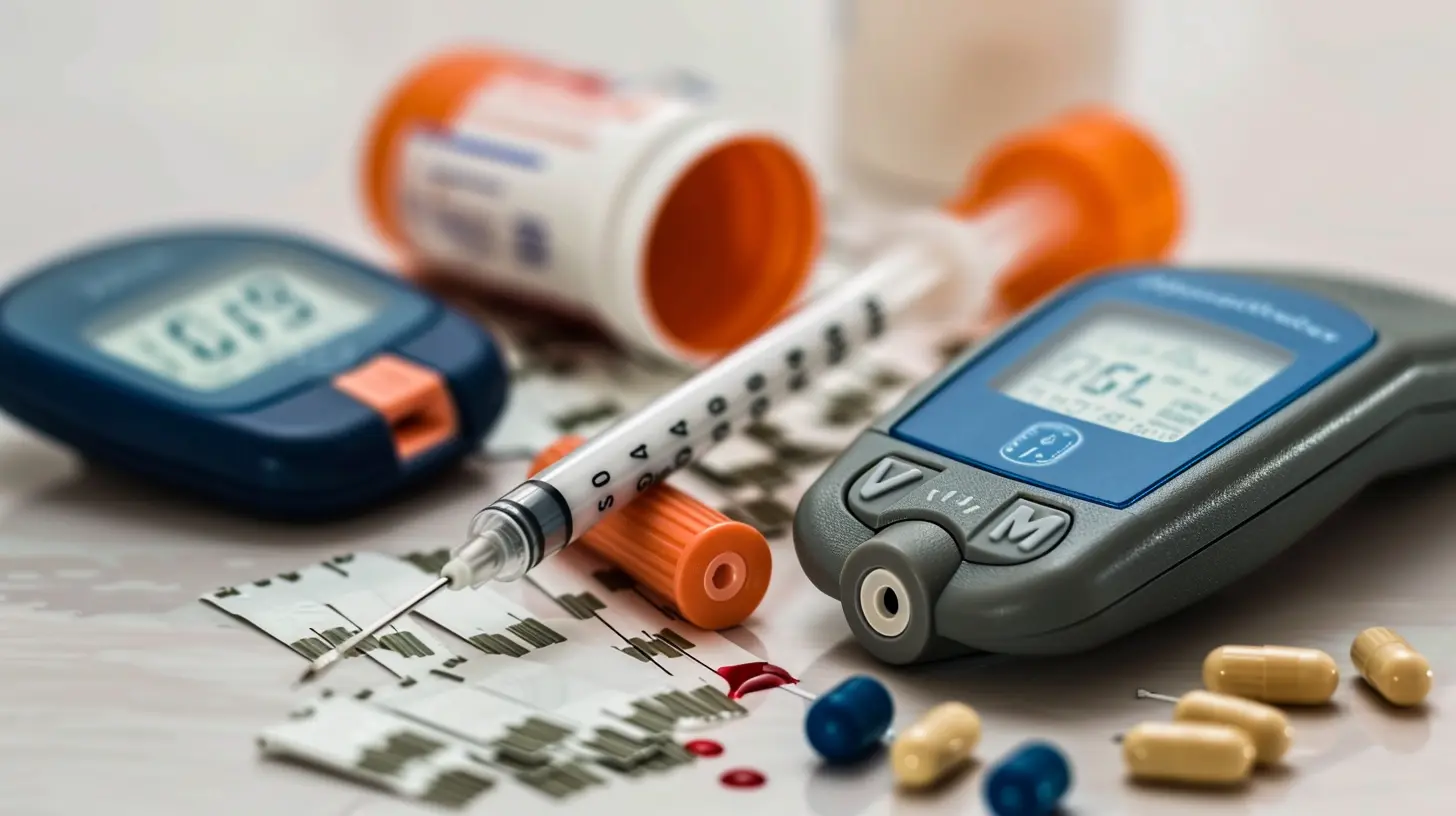Debunking Common Myths About Diabetes
12 August 2025
Diabetes is one of the most misunderstood health conditions today. With so much misinformation floating around, it's easy to fall for myths that can shape our perception of the disease. Whether you've heard that diabetes only affects overweight people or that eating too much sugar causes it, we're here to set the record straight.
In this article, we'll debunk some of the most common myths about diabetes and replace them with facts. Let's dive in!

Myth 1: Eating Too Much Sugar Causes Diabetes
This is probably the most widespread myth, and while sugar plays a role, it's not as simple as "eat sugar, get diabetes."The Truth
Type 1 diabetes is an autoimmune disease. Your immune system mistakenly attacks insulin-producing cells in the pancreas, and this has nothing to do with sugar intake.Type 2 diabetes, on the other hand, is linked to insulin resistance. While excessive sugar consumption can contribute to obesity, which is a risk factor for Type 2 diabetes, sugar alone isn't the sole cause. Genetics, lifestyle, and overall diet play significant roles.
So, while it’s a good idea to limit sugar for overall health, blaming diabetes solely on sugar isn't accurate.

Myth 2: Only Overweight People Get Diabetes
Many believe that diabetes is an "obesity disease" and only affects people who are overweight.The Truth
While excess weight is a risk factor, many thin people develop diabetes too. In fact, up to 20% of people with Type 2 diabetes have a normal weight.Other factors, like genetics, age, physical inactivity, and even environmental triggers, can play a role. Body weight is just one piece of the puzzle.

Myth 3: People With Diabetes Can’t Eat Carbs
Carbohydrates often get a bad reputation, with many thinking diabetics need to cut them out completely.The Truth
Carbs are an essential part of a balanced diet. The key is choosing the right kind of carbs and managing portion sizes.Whole grains, vegetables, legumes, and fruits contain complex carbohydrates that provide fiber and help keep blood sugar stable. Processed carbs, like white bread and sugary snacks, can cause blood sugar spikes and should be limited.
It's all about balance, not elimination.

Myth 4: Insulin Is Only Needed for Severe Diabetes
Some people think that taking insulin means their diabetes is "really bad" or that they failed to manage it properly.The Truth
Insulin is just another tool for managing diabetes—it's not a sign of failure.For those with Type 1 diabetes, insulin is necessary for survival, as their bodies don’t make it at all. In Type 2 diabetes, some people may need insulin if their body isn’t producing enough or if other treatments aren’t effective.
Taking insulin is simply a way to control blood sugar levels, not a measure of how severe the condition is.
Myth 5: Diabetes Isn’t a Serious Disease
Some believe diabetes is just about managing sugar levels and isn’t a major health concern.The Truth
Diabetes is a serious condition that, if left unmanaged, can lead to complications like:- Heart disease
- Kidney disease
- Nerve damage (which can cause amputations)
- Vision loss
Managing diabetes properly is crucial in preventing complications and leading a healthy life.
Myth 6: People With Diabetes Shouldn’t Exercise
A common misconception is that diabetic individuals should avoid physical activity because it might be dangerous.The Truth
Exercise is one of the best things someone with diabetes can do! It helps:- Lower blood sugar levels
- Enhance insulin sensitivity
- Improve heart health
- Aid in weight management
Of course, blood sugar levels should be monitored before and after workouts, and adjustments may be necessary. But regular exercise is a powerful tool for managing diabetes.
Myth 7: You Can "Catch" Diabetes from Someone Else
Many illnesses are contagious, but is diabetes one of them?The Truth
Absolutely not. Diabetes is not an infectious disease—you can’t catch it from someone else like you would a cold or flu.Type 1 diabetes is an autoimmune disorder, while Type 2 diabetes is largely influenced by genetics and lifestyle factors. No handshake, sneeze, or hug is going to give you diabetes!
Myth 8: If You Have Diabetes, You’ll Lose a Limb
Many people immediately associate diabetes with amputations.The Truth
While diabetes can lead to complications like poor circulation and nerve damage (which increase the risk of amputations), proper management drastically reduces these risks.By maintaining good blood sugar control, getting regular check-ups, and taking care of your feet, diabetes-related amputations are largely preventable.
Myth 9: Artificial Sweeteners Are Safe for All People With Diabetes
Some believe that swapping sugar for artificial sweeteners is a foolproof way to manage diabetes.The Truth
While artificial sweeteners don’t raise blood sugar levels the same way sugar does, they’re not necessarily harmless.Some studies suggest that excessive consumption of artificial sweeteners may:
- Affect gut health
- Increase cravings for sweets
- Lead to weight gain
It’s best to use them in moderation and focus on a diet rich in whole, unprocessed foods.
Myth 10: Once You Have Diabetes, There's Nothing You Can Do About It
Many people think a diabetes diagnosis means their health is doomed forever.The Truth
Diabetes is manageable, and for some people with Type 2 diabetes, lifestyle changes can even put it into remission.Healthy eating, regular exercise, weight management, and medication when needed can keep blood sugar levels in check and prevent complications. A diabetes diagnosis isn’t the end of the road—it’s just a new way of managing health.
Final Thoughts
Diabetes is surrounded by myths that can lead to unnecessary fear and confusion. Understanding the truth about the condition can help people manage it effectively and reduce the stigma associated with it.If you or someone you love has diabetes, remember: knowledge is power. The more you learn, the better equipped you’ll be to navigate this condition with confidence.
all images in this post were generated using AI tools
Category:
DiabetesAuthor:

Laurie Barlow
Discussion
rate this article
1 comments
Leona Roberts
This article effectively dispels prevalent misconceptions about diabetes, emphasizing the importance of accurate knowledge in managing the condition. By addressing myths surrounding diet, insulin use, and lifestyle factors, it empowers readers to make informed health choices and fosters a more supportive understanding of diabetes.
September 2, 2025 at 4:39 AM

Laurie Barlow
Thank you for your thoughtful feedback! I'm glad the article resonates and helps clarify misconceptions about diabetes. Accurate knowledge is crucial for effective management.


